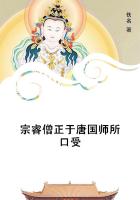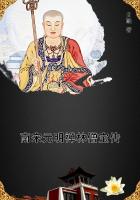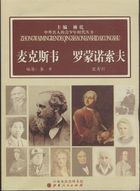THE questions which we have set ourselves to answer are mainly two: first, why had Diana's priest at Nemi, the King of the Wood, to slay his predecessor? second, why before doing so had he to pluck the branch of a certain tree which the public opinion of the ancients identified with Virgil's Golden Bough?
The first point on which we fasten is the priest's title. Why was he called the King of the Wood? Why was his office spoken of as a kingdom?
The union of a royal title with priestly duties was common in ancient Italy and Greece. At Rome and in other cities of Latium there was a priest called the Sacrificial King or King of the Sacred Rites, and his wife bore the title of Queen of the Sacred Rites. In republican Athens the second annual magistrate of the state was called the King, and his wife the Queen; the functions of both were religious. Many other Greek democracies had titular kings, whose duties, so far as they are known, seem to have been priestly, and to have centered round the Common Hearth of the state. Some Greek states had several of these titular kings, who held office simultaneously. At Rome the tradition was that the Sacrificial King had been appointed after the abolition of the monarchy in order to offer the sacrifices which before had been offered by the kings. A similar view as to the origin of the priestly kings appears to have prevailed in Greece. In itself the opinion is not improbable, and it is borne out by the example of Sparta, almost the only purely Greek state which retained the kingly form of government in historical times. For in Sparta all state sacrifices were offered by the kings as descendants of the god. One of the two Spartan kings held the priesthood of Zeus Lacedaemon, the other the priesthood of Heavenly Zeus.
This combination of priestly functions with royal authority is familiar to every one. Asia Minor, for example, was the seat of various great religious capitals peopled by thousands of sacred slaves, and ruled by pontiffs who wielded at once temporal and spiritual authority, like the popes of mediaeval Rome. Such priest-ridden cities were Zela and Pessinus. Teutonic kings, again, in the old heathen days seem to have stood in the position, and to have exercised the powers, of high priests. The Emperors of China offered public sacrifices, the details of which were regulated by the ritual books. The King of Madagascar was high-priest of the realm. At the great festival of the new year, when a bullock was sacrificed for the good of the kingdom, the king stood over the sacrifice to offer prayer and thanksgiving, while his attendants slaughtered the animal. In the monarchical states which still maintain their independence among the Gallas of Eastern Africa, the king sacrifices on the mountain tops and regulates the immolation of human victims; and the dim light of tradition reveals a similar union of temporal and spiritual power, of royal and priestly duties, in the kings of that delightful region of Central America whose ancient capital, now buried under the rank growth of the tropical forest, is marked by the stately and mysterious ruins of Palenque.
When we have said that the ancient kings were commonly priests also, we are far from having exhausted the religious aspect of their office. In those days the divinity that hedges a king was no empty form of speech, but the expression of a sober belief. Kings were revered, in many cases not merely as priests, that is, as intercessors between man and god, but as themselves gods, able to bestow upon their subjects and worshippers those blessings which are commonly supposed to be beyond the reach of mortals, and are sought, if at all, only by prayer and sacrifice offered to superhuman and invisible beings.
Thus kings are often expected to give rain and sunshine in due season, to make the crops grow, and so on. Strange as this expectation appears to us, it is quite of a piece with early modes of thought. A savage hardly conceives the distinction commonly drawn by more advanced peoples between the natural and the supernatural. To him the world is to a great extent worked by supernatural agents, that is, by personal beings acting on impulses and motives like his own, liable like him to be moved by appeals to their pity, their hopes, and their fears. In a world so conceived he sees no limit to his power of influencing the course of nature to his own advantage. Prayers, promises, or threats may secure him fine weather and an abundant crop from the gods; and if a god should happen, as he sometimes believes, to become incarnate in his own person, then he need appeal to no higher being; he, the savage, possesses in himself all the powers necessary to further his own well-being and that of his fellow-men.
This is one way in which the idea of a man-god is reached. But there is another. Along with the view of the world as pervaded by spiritual forces, savage man has a different, and probably still older, conception in which we may detect a germ of the modern notion of natural law or the view of nature as a series of events occurring in an invariable order without the intervention of personal agency. The germ of which I speak is involved in that sympathetic magic, as it may be called, which plays a large part in most systems of superstition. In early society the king is frequently a magician as well as a priest; indeed he appears to have often attained to power by virtue of his supposed proficiency in the black or white art. Hence in order to understand the evolution of the kingship and the sacred character with which the office has commonly been invested in the eyes of savage or barbarous peoples, it is essential to have some acquaintance with the principles of magic and to form some conception of the extraordinary hold which that ancient system of superstition has had on the human mind in all ages and all countries.
Accordingly I propose to consider the subject in some detail.















